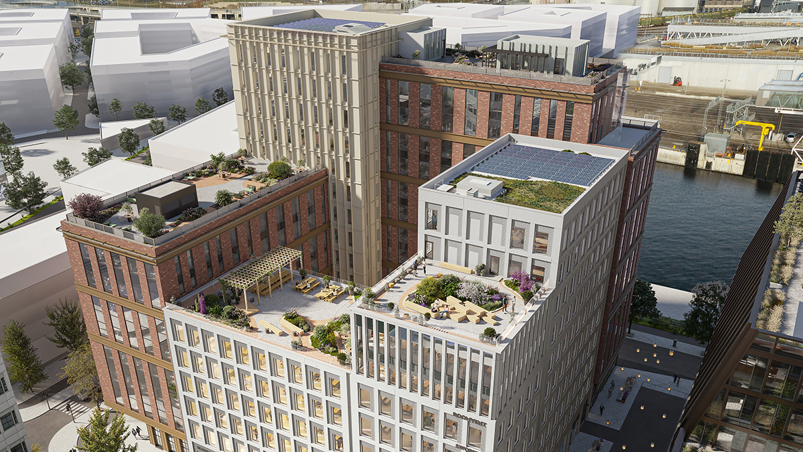“The top ranking is a testament to both our efforts and the Stockholm City’s ambitious sustainability initiatives in Stockholm's Harbor Blocks. The City's high standards make it both exciting and challenging to develop a sustainable and energy efficient office building with modern, high-quality architecture,” says Gustav Thörnqvist, Sustainability Manager at Niam.
The City of Stockholm has an established sustainability programme with stringent requirements for the entire area surrounding Norra Djurgårdsstaden and the properties within Stockholm’s Harbor Blocks. Aligned with these goals, Grid 17 has undergone a comprehensive BREEAM certification, assessing multiple aspects of the property’s sustainability. The rating reflects a series of sustainability measures that, while individually small, collectively have a significant impact on the building's performance.
Monika Fridenäs, Project Manager at Niam, highlights some of the initiatives implemented in Grid 17:
"High standards have been set for the indoor environment, particularly focusing on sound and air quality. The building's geometry and design play a crucial role in reducing energy consumption. When combined with district heating, district cooling, and solar panels, we will achieve a 40% reduction in energy consumption compared to conventional systems. Solar panels on the roof will supply around 15% of the building's energy needs. Additionally, stormwater management has been a feature, with green roofs that help delay, purify, and channel stormwater, while also promoting biodiversity."
Construction of Grid 17 is currently in full swing. The property will feature nine flexible office floors with a total lettable area of 5,900 sqm. Tenants will have the opportunity to lease entire floors, each with access to a private, green rooftop terrace. Move-in for future tenants is expected in Q3 2025.
Grid 17 project is planned to be Taxonomy aligned after completion of the construction.
BREEAM is a certification system originating from the UK and has been used in over 500,000 buildings worldwide since 1990. It is the most widely adopted environmental certification system in Europe and is managed in Sweden by the Sweden Green Building Council.
The statistics are based on the latest data from the Sweden Green Building Council, with the results to be published on Green Book Live in November 2024.

